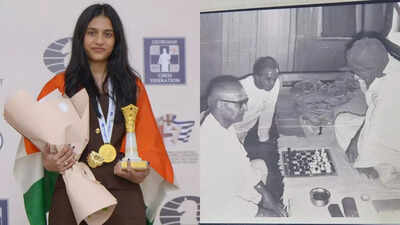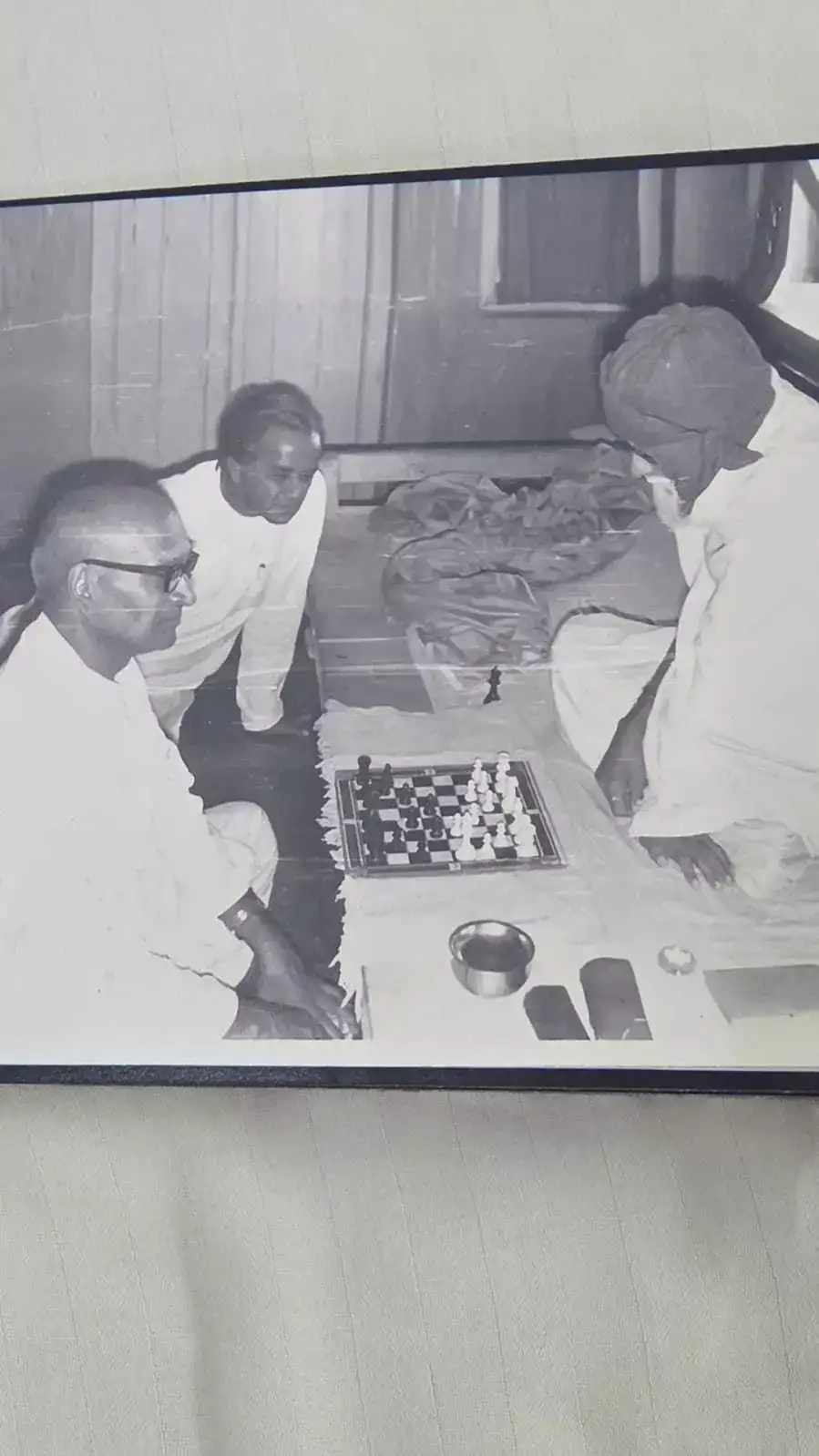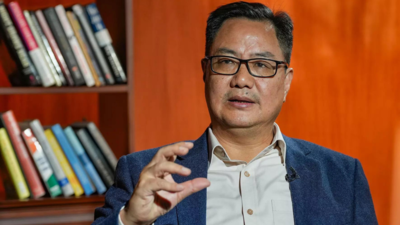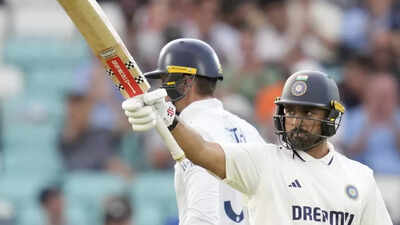Chess has always been in Divya Deshmukh’s genes; great-grandfather used to play with Vinoba Bhave | Chess News

NAGPUR: Only a few know that Divya Deshmukh carries in her veins a quiet legacy. The youngest and only Indian woman to win the women’s chess World Cup, Divya ‘inherited’ her love for the 64-square battlefield partly from her maternal great-grandfather, Dr Durgaprasad Sharma.Sharma, a chess aficionado, used to play with Vinoba Bhave, advocate of nonviolence, social reformer, Gandhi’s spiritual successor, and freedom fighter. Although Bhave’s penchant for playing chess is not so well documented in the public domain, the Deshmukh family has a photograph of Sharma and the Bhoodan movement spearhead engrossed in a game of chess in the 1970s.Go Beyond The Boundary with our YouTube channel. SUBSCRIBE NOW!Divya’s mother Dr Namrata Deshmukh said her 19-year-old poster girl of chess was destined to play the game. “It’s in her genes,” a beaming Dr Namrata said, referring to her grandfather himself being a chess aficionado. In a chat with TOI, Dr Namrata said, “My grandfather, my mother’s father, Dr Durgaprasad Sharma, was close to Acharya Vinoba Bhave. They used to play chess every Saturday at the Pavnar Ashram.”For her mother, chess wasn’t something Divya just dived into. It was like a cherished desire of the doctor couple, Jitendra and Namrata. Divya’s chess journey began in 2010 when she was just five years old. When Namrata found a nearby chess academy in their residential colony at Shankar Nagar in Nagpur, she enrolled Divya. Dr Namrata added, “As I grew up watching my grandfather and Acharya Bhave play chess games every Saturday, I was fascinated with it.”

Durgaprasad Sharma and Vinoba Bhave playing chess (TOI Special Arrangements)
While Divya’s elder sister Aarya started playing basketball and badminton in their colony, Dr Namrata wanted her younger daughter to play chess. She said, “When I found Rahul Joshi sir’s chess academy near our Shankar Nagar residence, I enrolled Divya. Luckily, she developed an interest in the sport and started making steady progress.”In 2012, Divya won her first national gold medal and never looked back.Divya made her first international mark by becoming the U-8 Asian champion and qualified to represent India in the World Youth Championship. In 2014, the eight-year-old Divya became the youngest U-10 world champion in Durban, South Africa.
Poll
Should more support be given to young female athletes in India?
To focus on Divya’s dreams on the chequered boxes, Dr Namrata gave up her medical practice. She said, “As doctor parents, it was unimaginable that Divya was missing school, not studying just to focus on playing chess. Though she was focused, it was a risk, but we went with the flow. Divya was happy and interested in chess, so we had to support it. And it became our duty.”With Divya winning medals in every age category and unable to attend academic classes regularly, her parents enrolled her in open schooling, where she completed her Class 12. Divya has started her graduation too from open schooling.Every time Divya wins an international medal, the discussions in the Deshmukh family revolve around destiny. “Looking at her progress, many times I feel it’s my grandfather’s blessings,” said Dr Namrata.






